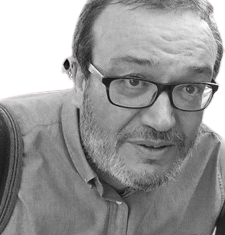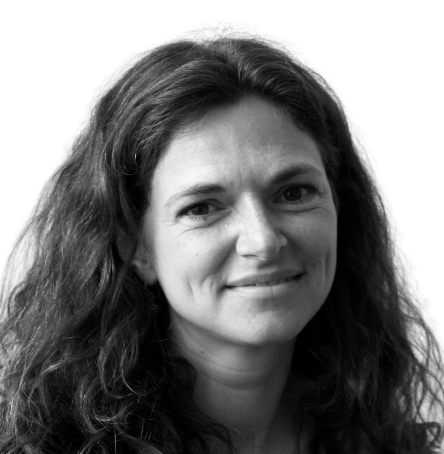Javier Santos
Dr Javier Santos is consultant of Gastroenterology at Vall d`Hebron Hospital, Barcelona, Director and Principal Investigator of the Neuro-Immuno-Gastroenterology Group and Coordinator of the Liver and Digestive Diseases Area, Vall d’Hebron Research Institute, and member of the Internal Scientific Committee of VHIR, Member of the ROME FOUNDATION.
Dr. Santos graduated in Medicine at the University of Navarra (1982-1988), Spain. He then completed his training in Gastroenterology and Hepatology after accessing via MIR training (1989-1993) and obtained the title of Specialist (1994) at the Hospital General Universitari Vall d'Hebron, Barcelona, Spain. In parallel, he completed predoctoral studies in basic and clinical research in neurogastroenterology at the Digestive Diseases Research Unit, Department of Gastroenterology, Hospital Vall d'Hebron (1993-1997), and obtained his Ph.D. (1997) from the Autonomous University of Barcelona, Spain. D. (1997), under the tutelage of Dr. E. Saperas and Professor JR Malagelada with the reading of the thesis entitled "Neuro-regulation of digestive functions by thyrotropin-releasing hormone in the central nervous system". Later he started a 3-year postdoctoral stage (1997-1999) in immunology and gastrointestinal physiology, at the Intestinal Disease Research Program, McMaster University, Canada, under the mentorship of Dr. Mary H. Perdue.
His research in the field of neuro-immuno-gastroenterology remains inherently translational, with special emphasis on the mechanisms linking genetic, molecular, microbial, cellular and environmental determinants to the clinical manifestations of irritable bowel syndrome and other functional gastrointestinal disorders. His research also pursues the identification of sensitive and specific biomarkers potentially useful for the diagnostic and therapeutic management of these disorders. His research activity also includes collaborations with several centers of international prestige. Dr. Santos' scientific contribution includes dozens of original manuscripts, reviews and editorials in high impact and international journals, and numerous communications/abstracts/conferences/lectures in the most relevant forums of the specialty.
In addition, Dr Santos has contributed to the development of clinical guidelines for the specialty, to the organization of national and international training courses on aspects related to functional diseases of the digestive system, and to research training by directing and participating in doctoral thesis. He is a member of numerous professional scientific societies, such as the European Society of Neurogastroenterology and Motility, the Brain-Gut Research Group, the International Foundation for Functional Gastrointestinal Disorders, the American Gastroenterological Association, the European Gastroenterological Federation, or the International Society of Mucosal Immunology and former member of the Future Trends UEGF Committee. He also collaborates as an external expert reviewer for regional, national and supranational public and private funding agencies and academic institutions, and for a very large number of scientific journals. Dr. Santos has been awarded by the Association of European and Mediterranean National Societies of Gastroenterology as Rising Star of Gastroenterology 2003, and more recently by the International Foundation for Functional Gastrointestinal Disorders (IFFGD) with the 2009 Research Award for the best Researcher in Clinical Sciences, for his contributions in the field of functional gastrointestinal disorders.
Finally, as a reflection of his national and international projection, Dr Santos is integrated in the CIBERehd of Hepatic and Digestive Diseases since 2009 and in the guidelines of support to the Consolidated Research Groups of Catalonia (2009 SGR 00219), having participated in several European projects, such as an ITN (European Training Network) in Neural Regulation of Intestinal Function "NeuroGut", Call: FP7-PEOPLE-2011-ITN, two COST actions of the European Program: BM1007 (Mast Cells and Basophils Targets for Innovative Therapies; http://www. mastcell-basophil.net/ ) and BM1106 (The Genes in Irritable Bowel Syndrome Research Network Europe (GENIEUR http://www.cost.eu/COST_Actions/bmbs/BM1106 ; https://genieur.eu/ ) and has recently obtained a 6 million euro project, as the main Coordinator, for the study of the origin of comorbidities in Irritable Bowel Syndrome, Horizon 2020 Framework Programme, Call: H2020-SC1-2019-Two-Stage-RTD, Project: 848228 - DISCOvERIE.









